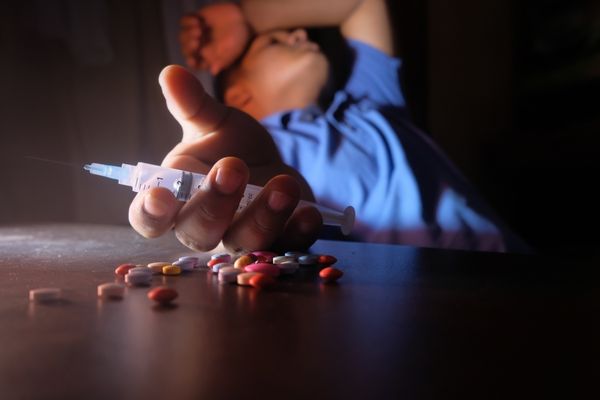Deadline: 15-Mar-23
The Executive Office of the President, Office of National Drug Control Policy (ONDCP), and the Department of Health and Human Services (HHS), Centers for Disease Control and Prevention (CDC), National Center for Injury Prevention and Control (NCIPC) are accepting applications for Fiscal Year (FY) 2023 Drug-Free Communities (DFC) Support Program Grants.
Purpose
- The purpose of the DFC Support Program is to establish and strengthen collaborations to support the efforts of community coalitions working to prevent and reduce substance use among youth, ages 12-18.
- The purpose of the DFC Support Program is to establish and strengthen collaborations to support the efforts of community coalitions working to prevent and reduce substance use among youth by addressing the factors in a community that increase the risk of substance use and promote the factors that minimize the risk of substance use.
Goals
By statute, the DFC Support Program has two goals:
- Establish and strengthen the collaboration among communities, public and private non-profit agencies, as well as federal, state, local, and tribal governments to support the efforts of community coalitions working to prevent and reduce substance use among youth (individuals 18 years of age and younger).
- Reduce substance use among youth and, over time, reduce substance use among adults by addressing the factors in a community that increases the risk of substance use and promoting the factors that minimize the risk of substance use.
Funding Information
- Approximate Total Supplemental Funding: $62,500,000
- Approximate Number of Awards: 100
- Approximate Average Award: $125,000
- Budget Period Length: 12 month(s)
- Period of Performance Length: 5 year(s)
Outcomes
- Improved knowledge regarding patterns of youth substance use.
- Improve knowledge of coalition efforts to address youth substance use in the community.
- Increase outreach to relevant sectors of the community to address youth substance use.
- Increase the capacity of local agencies and/or organizations to address youth substance use.
- Increase intergovernmental cooperation, coordination, and collaboration to change the conditions that impact youth substance use.
- Reduce factors in the community that increase the risk of substance use.
- Increase the promotion of factors that minimize the risk of substance use.
- Increase the ease, ability, and opportunity for youth to access settings, such as programs emphasizing self efficacy and learning skills that prevent substance use.
- Decrease the ease, ability, and opportunity for youth to access substances.
- Establish and strengthen collaboration among community stakeholders and organizations to address youth substance use.
- Reduce substance use among youth, and over time, reduce substance use among adults.
Strategies and Activities
- Provide information to the general public and key stakeholders about youth substance use.
- Enhance skills among relevant stakeholders so youth/adults can engage in positive social and decision-making capabilities.
- Provide support to increase opportunities that increase involvement in drug-free/healthy alternative activities.
- Enhance access, reduce barriers, and improve connections between systems and services that help prevent youth substance use.
- Change consequences to incentivize positive practices and disincentivize negative practices.
- Change physical design of the community to enhance protection against or to reduce the risk for youth substance use.
- Educate and inform about modifying/ changing policies that reduce access and availability to substances among youth.
Target Populations
- Applicants are expected to define the communities they propose to serve, using various geographic boundaries including neighborhoods, census tracts, zip codes, and school districts, as well as townships, counties, or parish lines, among other defining properties. Applicants should carefully consider the size and population of the area in which the coalition is established so they will have the ability to affect change. For example, choosing a community that is too large may be problematic due to the inclusion of multiple neighborhoods that have distinct problems or conditions that need to be addressed to affect change.
Eligibility Criteria
- Eligible Applicants:
- Unrestricted
- City or township governments
- Public and State controlled institutions of higher education
- Nonprofits that do not have a 501(c)(3) status with the IRS, other than institutions of higher education
- Special district governments
- Native American tribal governments (Federally recognized)
- County governments
- Others
- Nonprofits having a 501(c)(3) status with the IRS, other than institutions of higher education
- State governments
- Independent school districts
- Native American tribal organizations (other than Federally recognized tribal governments)
- Private institutions of higher education
- Additional Eligibility Category:
- Government Organizations: State governments or their bona fide agents (includes the District of Columbia) Local governments or their bona fide agents Territorial governments or their bona fide agents in the Commonwealth of Puerto Rico, the Virgin Islands, the Commonwealth of the Northern Marianna Islands, American Samoa, Guam, the Federated States of Micronesia, the Republic of the Marshall Islands, and the Republic of Palau State controlled institutions of higher education American Indian or Alaska Native tribal governments (federally recognized or state-recognized) Non-government Organizations American Indian or Alaska native tribally designated organizations.
- Additional Information on Eligibility Eligible applicants are community-based coalitions addressing youth substance use that have previously received a DFC grant (Year 1–5). In addition, community-based coalitions that had previously received a DFC grant but have experienced a lapse in funding or have concluded the first five-year funding cycle and are applying for a second five-year funding cycle are eligible for this funding. A DFC applicant must reside within the United States and/or the U.S. territories. The applicant can only be in receipt of one DFC grant at a time and cannot apply on behalf of multiple coalitions.
For more information, visit Grants.gov.
